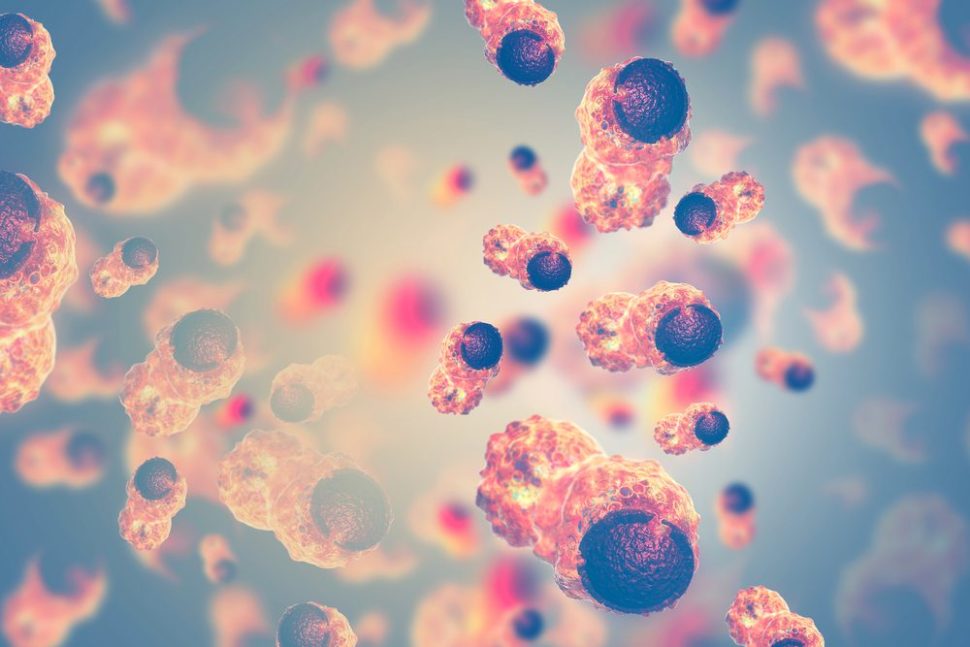The field of oncology, the way cancer is diagnosed and treated, is getting revolutionized by many scientific breakthroughs.
Behind CVDs (cardiovascular diseases), cancer is the second leading cause of death globally, responsible for 1 in 6 deaths (8.8 million in 2015).
Cancer is still taking a heavy toll on life, but new therapies and treatment plans from gene editing to diagnosis by artificial intelligence are increasingly effective and survival rates are climbing.
Thanks to a successful harnessing of a sea of medical data produced over the last couple of centuries, cancer diagnosis and treatment is evolving considerably.
Scientists can now change how the body distinguishes between cancerous cells.Click To TweetWhatever the origin of the research discipline involved, one of medicine’s most important goals is to better understand cancers in order to propose treatments that are more effective and better adapted to the profile of each patient and the specific type of cancer.
In an effort to keep you updated,
Here are 3 Recent Breakthroughs in Cancer Science:
1. Forcing Aggressive Brain Tumors to Stop Growing
Researchers at Stanford University School of Medicine have announced a new breakthrough in the fight against a specific type of brain tumors.
In a study, published this week in Nature, researchers report that, a group of deadly brain tumors (called high-grade gliomas), cease growing if a protein is absent or blocked.
In mice, these aggressive brain tumors stop growing and decrease in size if the signal of a molecule (called neuroligin-3) is interrupted.
These new findings built on prior research by the team of Dr. Michelle Monje, an assistant professor of neurology, who, in 2015, showed how brain tumor growth is stimulated by the neuroligin-3 protein.
“The findings suggest that interrupting the neuroligin-3 signal,” said Dr. Monje in a press release, “could be a helpful strategy for controlling high-grade gliomas in human patients.”
2. Restoring Structural Normalcy of Breast Cancer Protein
Triple negative breast cancer, accounting for 15 to 20 percent of all breast cancers, is a very aggressive cancer against which oncologists have few therapeutic weapons.
TNBC, which is more aggressive than other types of breast cancers, is often linked to a hereditary predisposition, mutations in the BRCA1 protein that’s supposed to prevent tumor development.
Now, for the first time, scientists from Virginia Tech Carilion Research Institute have managed to determine the full architecture of the BRCA1 protein, paving the way for the restoration of its original tumor-fighting function.
Researchers, whose findings were published this week in Science Advances, could identify the site in the cell (dubbed a “modification hotspot”) where BRCA1 is marked to be destroyed.
“The hotspot region on mutated BRCA1 renders the protein more vulnerable to cellular degradation. We found that we could remove the signaling tag in the BRCA1 hotspot and make the protein look perfectly normal,” the researchers noted.
Looking normal doesn’t necessarily mean the restored protein has regained its normal behavior, and the VTCRI research team is now investigating further.
3. “Labyrinth Chip” to Isolate Cancer Stem Cells
Put very generally, cancer develops from an abnormal cell that proliferates anarchically and forms a tumor. After a while, the tumor will run out of space and oxygen and will thus send cancerous cells into the bloodstream looking for other places to form secondary tumors (metastases).
But it’s hard to detect tumor stem cells, which are sometimes accounting for one in a billion blood cells, and are known to be very aggressive and drug-resistant.

Researchers at University of Michigan took inspiration from the Greek Labyrinth and built a maze-like chip etched with fluid channels to capture tumor cells.
By separating out blood samples containing tumor stem cells for analysis, the new chip would help doctors monitor cancer development, flag marauding cancerous cells, and personalize treatments for patients.
The “hydrodynamic maze” is already tested in a breast cancer clinical trial.



















Comments (0)
Most Recent